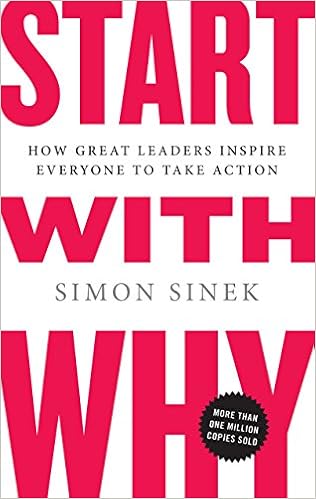10+ New Leadership Books For 2023 · The Blueprint of Great Leaders
The best leadership books won't include any golden rules, but habits to be a successful leader
Great leaders are required to lead themselves and other people in any organization. Some necessary skills for leadership may come naturally, but leaders also need to create room for further development. One of the ways to attain that is by reading books about leadership.
Leadership books are excellent resources for helping aspiring leaders expand their horizons and learn new things, ultimately becoming better at the job. They discuss topics on daily management, strategizing, organizational development, time management and self-improvement.
What Are Some Essential Leadership Skills?
There is no one definite recipe for becoming an effective leader, as the skills required will vary depending on the organization type and position. However, there are essential leadership skills that are important for success in any organization. The most important of these skills are
- communication,
- problem solving, and
- decision making.
Good communication skills are essential for leaders, as they need to be able to effectively transmit their vision and goals to their team members. In hybrid environment
Leaders must be able to listen carefully to others and take into account their opinions and ideas. Problem solving skills are critical, as leaders often need to find solutions to difficult problems.
Decision making skills are necessary when it comes time to choose between different courses of action. A good leader needs to be able to quickly assess the situation and make a decision that is best for the organization.
What Are The Key Trends In Leadership?
- Rebuilding social capital in a hybrid workplace environment
- Talent acquisition should be team goal not just a HR function
- Find the right remote work policy for long run
- Focus more on the product results not just the KPIs
- Improve the companies flexibility, we are over the 2010s
The definition of leadership has evolved over time, and the trend today is for a more collaborative and inclusive form of leadership. Leaders are now seen as facilitators who work with their team to achieve common goals. This type of leadership is often called “servant leadership“.
Another key trend in leadership is the increased focus on emotional intelligence. Leaders are now recognizing the importance of understanding and managing their own emotions, as well as the emotions of their team members. This helps to create a more positive and productive work environment.
In today's business world, a growing number of organizations are using a hybrid model for their workforce. This approach combines the best aspects of both traditional and virtual work environments. By doing so, these companies are able to achieve greater levels of workplace effectiveness. Leaders need to adapt the hybrid thinking in workplaces, they need to remain as flexible as possible, which requires a new set of skills for them.
Below is my our recent leadership books recommendations.
What Are The Top Modern Leadership Books?

Leading with Purpose, by Pankaj Prasoon (2023)
Leading with Purpose is an insightful book that captivated me for its in-depth exploration of authentic leadership in the modern context. The author has an extensive experience in the technology industry, offers a compelling narrative that is both educational and motivational.
What I found particularly engaging about this book is its focus on the cultivation of a growth-oriented mindset among leaders. Prasoon skillfully demonstrates how self-reflection and alignment of personal values with leadership styles can empower individuals, transforming them into effective and purpose-driven leaders. This aspect resonates deeply, as it goes beyond the surface level of leadership strategies.
The book is also filled with practical strategies and tools that readers can apply directly in their professional lives. These actionable advices could be implemented to foster a motivated and enthusiastic culture in the workplace.
The combination of personal insights, actionable strategies, and a strong emphasis on positive change makes Leading with Purpose an exceptional read.

The Creative Team, by Andrew Carlson (2023)
The Creative Team is a professional development book that focuses on the skills and knowledge required to successfully lead a team of creative professionals. Andrew argues that creative skills alone are not sufficient for preparing individuals for creative leadership roles and provides guidance on human, organizational, and operational challenges that come with promotions to leadership.
The author covers topics such as scaling oneself and one's time, team organization, recruitment, talent strategy, and other essential skills necessary for leaders. Carlson draws on his over 20 years of experience as a professional advertising creative in New York. I especially enjoyed the honest parts of the book like “Say the Hard Things” which makes this book a credible source of information.
The book serves as a guide for professionals transitioning from individual contributors to leading creative teams, and provides insights into building and leading successful teams that can deliver pitch and award-winning work.

10 Leading Tools, by KG Butler (2022)
How is it that some leaders inspire and create multitudes of loyal followers? And why is it that some organizations and people challenge the status quo to succeed time and time again? The answer is simple, these people have discovered suitable tools required for success, as you will find in 10 Leading Tools.
This book talks about the contemporary avenue needed for leadership. It gives readers discerning strategies necessary for handling the challenges of today’s leadership and management. Butler presents a step-by-step pathway required by leaders of the new generation. He has written every detail with profound anecdotes based on his life, years of research, and professional experience. He also uses compelling stories from world-class athletes and other learned leadership savants.
As the title suggests, the book gives ten crucial tools needed for leadership. Some of them are about being bold, agile, authentic, and using purpose over task. The techniques presented in this book are practical, and they will help you in family, career, and community leadership.

Hearts Touched with Fire, by David Gergen (2022)
How are great leaders made, and what does excellent leadership look like? That is the answer David provides in this book. He has been a leader in the public arena, having been the Harvard Center for Public Leadership founder, a CNN analyst, and a former White House adviser.
He draws the insights he gives readers from his experiences of many teaching and mentoring decades. To unravel the fundamental constituents of effective leadership, David goes through the journeys of past and present leaders, historical icons, the Black Lives Matter Movement, and other contemporary game-changers.
Leadership begins from within, and a leader has to be self-aware before achieving self-mastery. No good leader can lead others unless they can lead themselves. As someone starts leaping into the leadership world, they kick off their outer journey, overcome setbacks, persuade others, empower them, and navigate crises. They need to do all these things with purpose, passion, humor, and a sense of history.
This book excellently distills past wisdom and experience into giving an invaluable guide for future leaders.

A New Way to Think, by Roger L. Martin (2022)
As CEO adviser, Martin noted that every executive had a framework or way of thinking to guide their strategy and activities. However, these frameworks seemed to become so automatic that when one of them didn’t work, the response was to try its application again but more enthusiastically. That’s when he took a new approach to help after company leaders went to him with questions.
They wanted to know how they could decide where and how to play and win, the key to changing and shaping corporate culture, and how to design a sustainable yet prosperous innovation process.
Martin now gives his approach in this book about how leaders must first break current but dysfunctional models and create a new way of thinking about the problems at hand. They must then come up with more effective and powerful ways to overcome the difficulties.
He has written this book with clarity and incisive intellect to cover a complete breadth of management. He highlights how to illuminate the true competitive nature and discusses how customers are company success drivers, strategy, and execution.

When They Win, You Win, by Russ Laraway (2022)
Every leader has to create happy and engaged teams if they want to succeed. But many businesses and companies are filled with leaders who tend to think that having miserable staff is the way to deliver more profits. This is how leaders fail. But, consistently maintaining a satisfied workforce drives better business.
In this book, Russ provides leaders with a coherent, straightforward, and complete leadership standard about how to come up with incredible levels of employee engagement.
He highlights the three main elements for attaining that: setting clear directions, coaching employees frequently, and actively engaging with employees to become aware of their long-term career goals.
If a company’s organizational leadership can keep their employees productive, happy, and engaged, intended goals and results will surely follow for everyone- the leader, employees, shareholders, and customers.

Rebalance, Wendy by Jagerson Teleki (2022)
What does it take to thrive as a leader in a whole circle as a purpose-driven individual, parent, partner, and citizen? As everyone strives to reset their lives, what does economic change call for as businesses serve society, not the opposite? Can someone excellently do it all, or does something else have to give? These are the questions tackled in this book.
Tyler drives her insights through conversations with ambitious women striving to be leaders of social impact jobs while raising good kids and building solid relationships for themselves and the community.
This book distills the hard-earned lessons they have had to learn about balancing and rebalancing while in the middle of an onslaught of constantly changing priorities and demands. The book looks at the conflicts, trade-offs, and juggling acts many leaders have to encounter and illuminates tested practices and principles for freedom, survival, and prosperity.

Talent, by Tyler Cowan & Daniel Gross (2022)
This book talks to leaders about how to identify talent with a creative spark. The questions unraveled here are about the extent to which human creativity is predictable and if it is irreducible through intuition but unique when manifested every time.
Talent passes the message that talent identification and search at its peak level requires a scientific and artistic approach. That is how leaders can find creative, driven, and insightful people capable of transforming their organizations and bettering everyone around.
This book has fundamental insights into the relevant elements of the talent search process. It talks about how to handle interviews, weighing intelligence, personality judgment, and matching for specific jobs.
It also takes a modern approach and highlights how to evaluate talent during online interactions like Zoom calls. In addition, the book talks about why talented women tend to be still undervalued, understanding unique talents in disabled or supposedly disabled people, and delegating to find talent.

The 21 Irrefutable Laws of Leadership, by John C. Maxwell (2007)
John takes on several characteristics one must develop to become a good leader. He highlights the laws that can help with that and how they relate with one another for excellent leadership. John supports every law in the book with real-world examples of leaders from all walks of life and shows how they have had to fulfill each law. He has also written this book to show how the highlighted laws can benefit different people, whether in the government, church, or a particular industry.
Leaders are not born overnight. Leadership takes time, and one must assess their capabilities and then commit to improvement. This comes with sacrifices and lost opportunities, which we must understand.
Good leaders view success based on how well they have built others within their influential circles and not what has benefited them personally. Leaders must be trust agents, and they have to maintain integrity while they work and walk their talk. These are some of the pointers in this leadership book, but there are more insights.

UnCommon Leadership for the New Reality, by Ed Chaffin (2022)
Leadership with a one-size-fits-all approach is dead. Leadership is personal and customized, which is the approach leaders should embrace. As Covid-19 has revealed, people want to be offered something completely different from what they have been getting from their leaders and companies. What someone perceives as motivation and inspiration can be entirely different from someone else’s point of view.
This book on leadership provides the roadmap for self-evaluation, assessing where one is going, and what leadership with inspiration looks like in our new reality. Ed looks deeply at certain leadership truths. He states that to become a good leader, someone must first become highly aware of belief systems, including their own and those of others.
Leadership also calls for someone to be aware of their values and have a vision. One must also employ this conviction as a tool for inspiration. Leadership demands personal and deep introspection to discover who someone is, how they lead, and how they affect others with the styles they use for leading.
Leaders must understand that leading is a blessing, and understanding your followers is how you can adjust your technique accordingly to become an uncommon leader.

Start with Why: How Great Leaders Inspire Everyone to Take Action, by Simon Sinek (2009)
The author shows us readers that people that have huge effect in the world all think, act, and communicate in the same way, differently than everyone else. Sinek calls this stunning idea The Golden Rule, and it functions as a framework for making organizations work and individuals can be inspired.
The author's approach starts with a “Why”, when individuals weren't likely to truly recognize a product, movement, service, or idea unless they knew the reason, the “Why” behind it. We also should understand “Why” in leadership, to build up an effective team around us.

Leadership: Theory and Practice, by Peter G. Northouse (2021)
Leadership: Theory and Practice is considered the Bible of leadership theories. The book provides a comprehensive overview of the major theories of leadership and offers a framework for thinking about leadership in general. It is an excellent resource for those who want to learn more about leadership or who are interested in studying leadership theory.
The 9th edition of Leadership is the latest version of the textbook that has been used in countless universities across the globe. One of the most significant changes in this edition is the addition of a chapter on inclusive leadership. This book discusses how to create an environment in which all employees feel valued and comfortable contributing their best work. It also includes case studies on organizations that have successfully implemented inclusion initiatives.
The new case studies featured in this edition offer a broad range of examples from around the world. They include leaders from for-profit, nonprofit, and government organizations, as well as from different cultures and industries. The cases are designed to help students understand how theory can be applied in practice.
Are Leadership Books Worth To Read?
Leadership books can be valuable for individuals seeking to enhance their leadership skills, but it's important to be cautious when reading them. Many of these books are just a marketing ploy, filled with vague or overly simplistic ideas that don't accurately reflect the complexities of real-world leadership situations. Unfortunately, some authors seem to prioritize making a profit over providing practical advice.
As someone who is skeptical of marketing tactics, I believe it's crucial to critically evaluate the ideas presented in leadership books. This is why we felt that it is necessary to make a list of my taste.
It's important to recognize that not every book will be applicable to every person or situation. Despite, I must acknowledge that there are still many leadership books that offer valuable insights and strategies for improving leadership skills, see my above list.
Finding them can be challenging amidst the sea of marketing-driven books.
Final Thoughts On The Best Leadership Books
As a final thought I would say that the best leadership books are those that provide readers with real life examples and strategies that can be applied in their own lives.
The books on this list are a great place to start, but there are many other great leadership books out there. If you are looking to improve your leadership skills, be sure to read as many of them as possible!
If you are interested in career also our selection of career change books.
My profession is online marketing and development (10+ years experience), check my latest mobile app called Upcoming or my Chrome extensions for ChatGPT. But my real passion is reading books both fiction and non-fiction. I have several favorite authors like James Redfield or Daniel Keyes. If I read a book I always want to find the best part of it, every book has its unique value.







